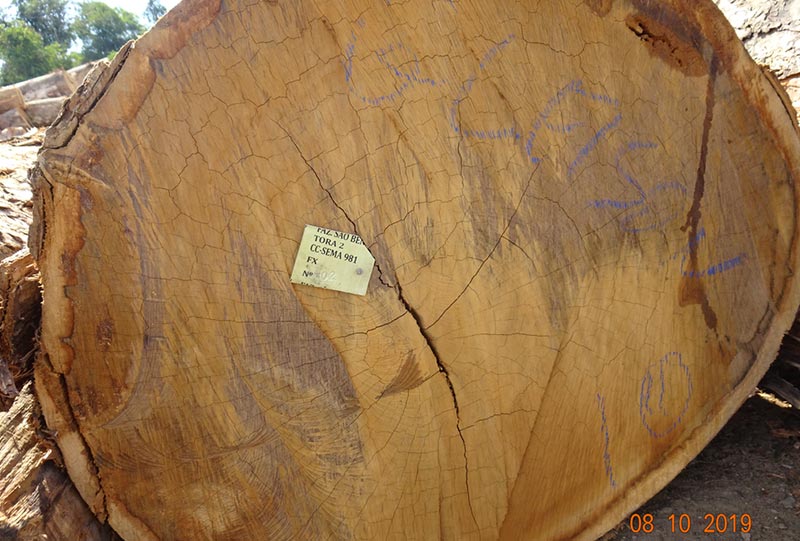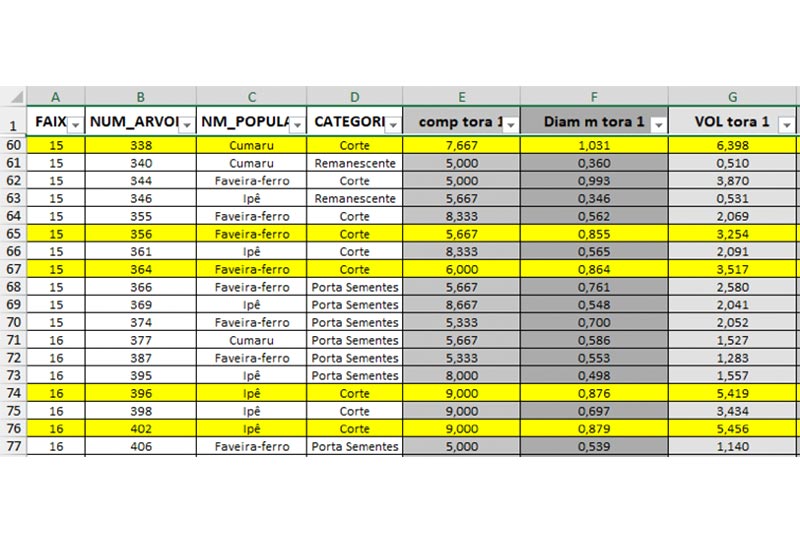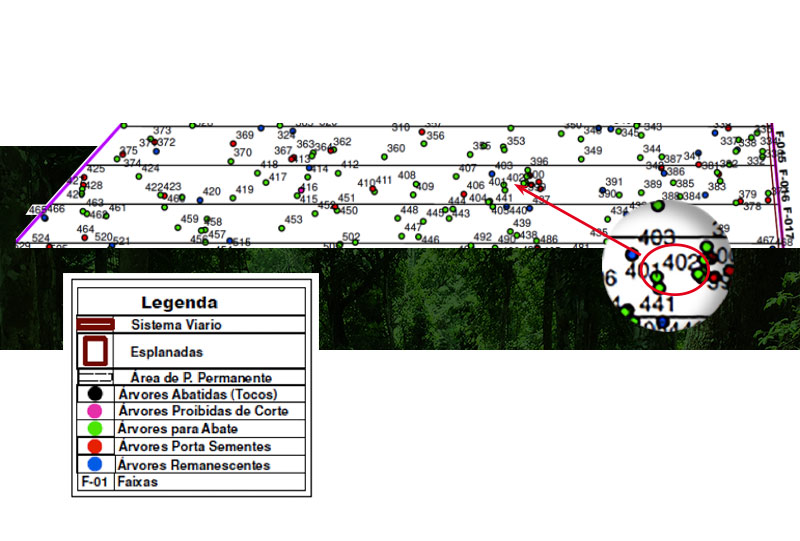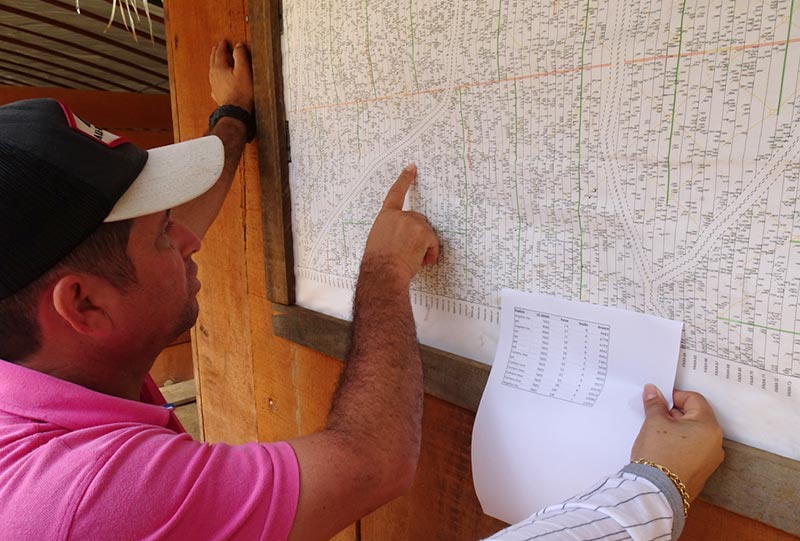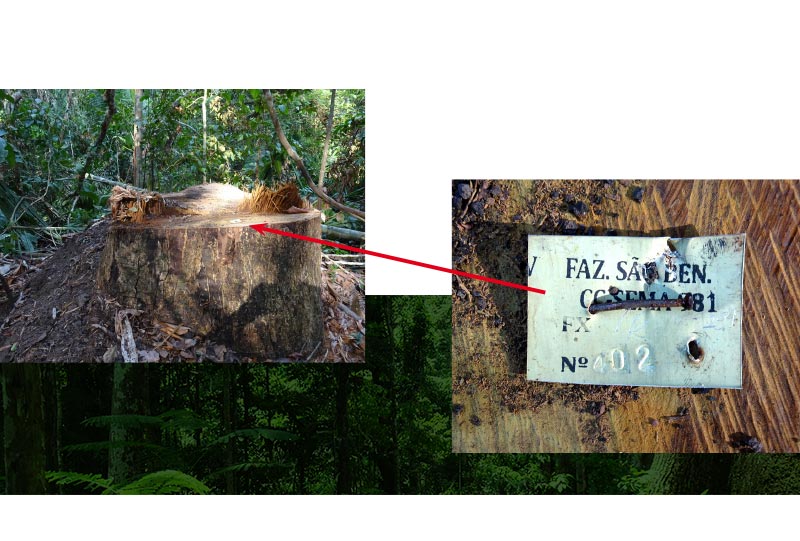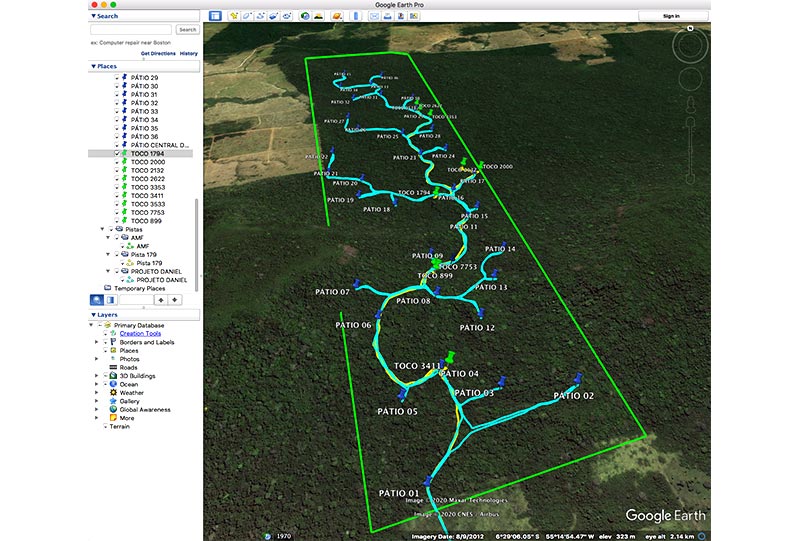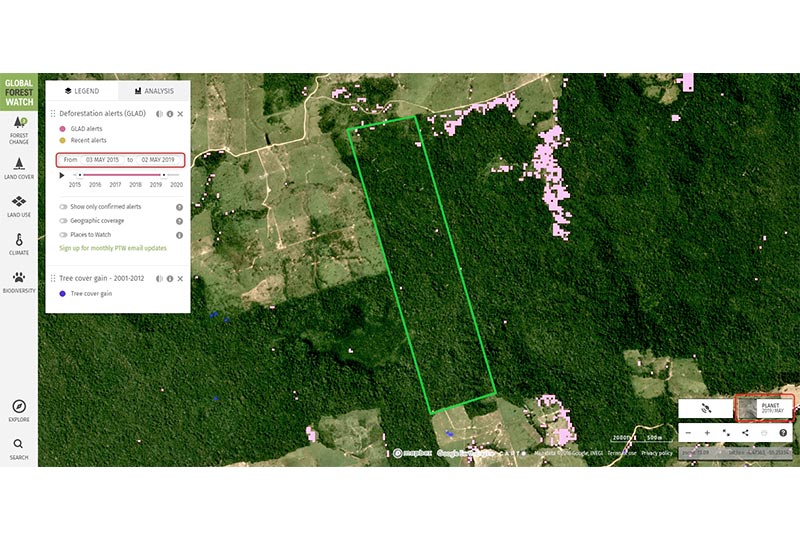The European Timber Trade Regulation (EUTR) as well as the Swiss Timber Trade Regulation (CHTR) prohibit the import of illegally harvested timber and their by-products.
Both are binding for all EU member states/Switzerland and the timber importers involved.
As an importer (first distributor in the sense of the regulation) MAICURU is obliged to document the EUTR with all the necessary evidence – including photos with GPS data!
This is particularly strictly checked by the authority responsible for us, the BLE (the German Federal Agency for Agriculture and Food).
We perform an annual supplier audit, including the felling area, and record an audit report on this. Here, we photograph randomly selected logs in the log yard of the sawmill. We compare the log numbers with the forest map, the inventory list, the log record and the root stumps visited in the forest. If, and only if, no discrepancies are found from the plan (PMFS) during this process, we proceed with the purchase.
Likewise, we also verify the implementation of other projects specifications (building of roads, shelters, etc.), ensure that child labor is not involved, that employees wear the provided protective equipment, and that the accommodations meet acceptable local standards, etc. Although this has no direct influence on the legal origin of the wood, these are criteria that should be taken into account with regard to the Supply Chain Act.
In addition to performing its due diligence in terms of legality and sustainability, MAICURU is supported by a partner company that specializes in satellite monitoring of logging areas
MAICURU also offers woods with FSC® certification.
